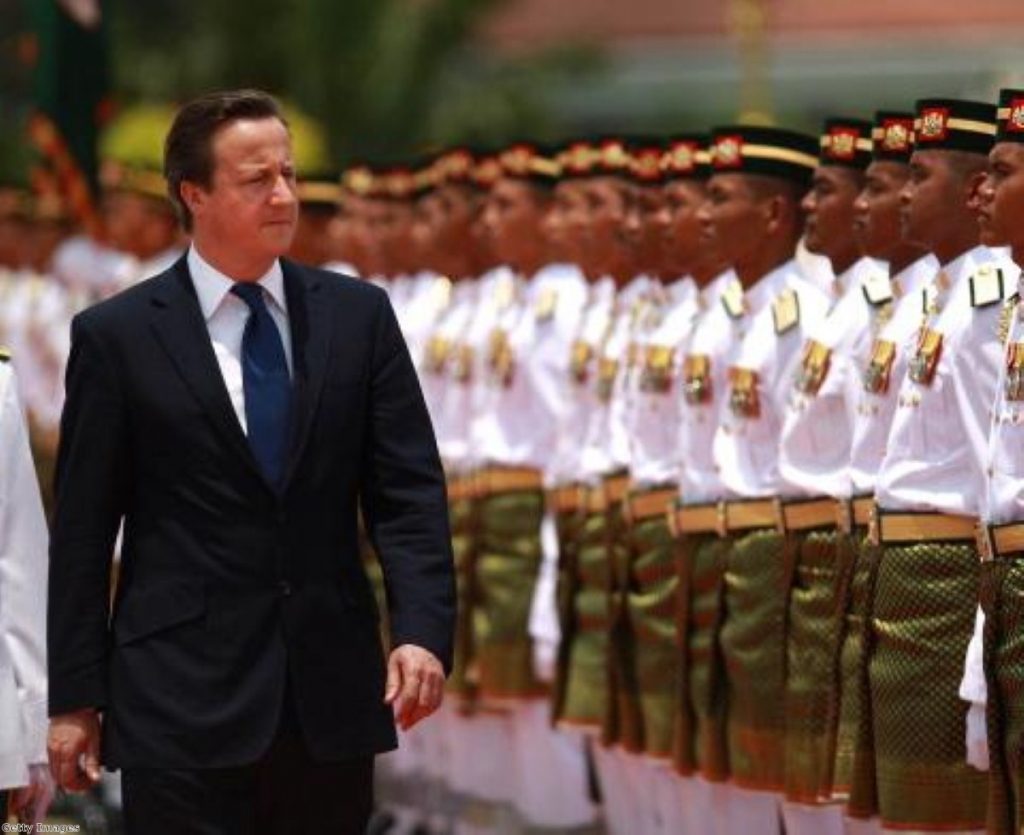Just looking: Business figures accompanying Cameron on Burma trip
Downing Street is hoping its claim that British business figures travelling to Burma with David Cameron are "tourists" will avert criticism from elsewhere.
No 10 is taking around ten of its business delegation with the prime minister as he makes a historic visit to Burma – the first by a western leader for decades.
The European Union will make a decision on whether to renew its sanctions against Burma on April 23rd, after the generals who have ruled the country since 1962 began shifting to democracy.
"If Burma moves towards democracy then we should respond in kind, and we should not be slow in doing that," Mr Cameron told BBC Radio 5 Live from Jakarta in Indonesia.
"But first I want to go and see for myself on the ground how things are going."
An international race is already gathering pace to secure contracts inside the previously authoritarian country once it completes its transition to democracy, however.
The Irrawaddy, a newspaper covering Burma and southeast Asia, reports that "planeloads of foreign investors" are "rushing in daily".
Craig Steffensen, director of the Asian Development Bank for Burma and Thailand, said: "I really think that Myanmar has the capability for private sector growth that we haven't seen anywhere else for a long time."
Under the terms of existing EU sanctions business contact with Burma is strictly restricted. But No 10 told the Guardian that the purpose of the business delegation's visit was pleasure, not work.
"The government policy on Burma is to discourage trade. That remains the case," a spokesperson said.
"Around ten members of the business delegation will come to Burma. They will have a cultural programme. They will be like tourists."
Mr Cameron will meet with president Thein Sein, whose leadership he praised for allowing the release of political prisoners, the holding of by-elections and the legalisation of previously outlawed political parties, on the trip.
He will also meet the chief beneficiary of the shift, opposition leader Aung San Suu Kyi.
That will mark the culmination of his five-day trip to southeast Asia, which has been heavily focused on trade so far.
Mr Cameron used a speech to an audience of students the Al Azhar University in Jakarta to attack extremists in the region.
"These extremists try to turn Islam into a closed and warped ideology that is closed to democracy," he said.
"But what Indonesia shows is that… it is possible to reject this extremist threat and prove that democracy and Islam can flourish alongside each other."





-01.png)